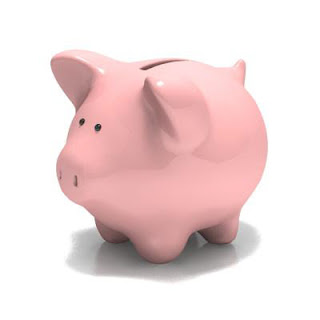
 Here are a few of my favorite quotes and my musings from that book:
Here are a few of my favorite quotes and my musings from that book:- This is such a vivid and descriptive idea: that our possessions have the power to destroy us. Rather, it is our perceived need to possess that gives our stuff power over us.
- If we put to great a value on our possessions, then we spend time worrying how to keep, preserve, and sometimes showcase our possessions because we don't know who we are without them.
- Giving our possessions the power to define who we are (an inanimate object giving meaning to our very purpose and the design of our souls) will ultimately fail us at our search for meaning, security, love, and purpose.
- This is the very idea of hoarding. It reminds me of Ebenezer Scrooge, who couldn't begin to spend all the money he had hoarded, but fear of the unknown caused him to sit on top of his wealth. Scrooge was bound, imprisoned, by his wealth.
- Didn't we all see that Scrooge was finally living a full life when he was able to let go of his wealth and possessions? His possessions no longer controlled or defined him.
- Clinging to stuff is opposite in nature of how we are to live. Cling to healthy relationships, to our loved ones, not to stuff.
- It is true, those who are able to share with others live with a lighter spirit because they are not consumed with wasting energy on figuring out how to hold onto possessions.

- I would go as far as to say that trying to arrange an outward life-style of simplicity without the inward can feed into an addiction for control.
- The need for control exists in most of us, and living by a strict set of lifestyle guidelines is a great way to feed, and temporarily satisfy that need for control, but it only makes the need for control greater in our life, and that is what will destroy us.
The inward reality, as Richard J. Foster describes, "is to seek the kingdom of God and the righteousness of His kingdom first--and then everything necessary will come in its proper order" (p. 75). It's like Stephen Covey's idea of putting first things first.
It is not fixing our outer environment in order to achieve inner peace and simplicity. It is letting our outward attitudes and surroundings to be a reflection of what exists inside of us.
To seek God first is to live simply. He is consistent in character, unwavering in His love, and wills what is good in my life.
To seek control first is to live in the oppression of our spirits of our own devising. I am inconsistent in character, my loyalties and love are moslty conditional, and I often cannot see what is good or bad until after the fact.
















.jpg)